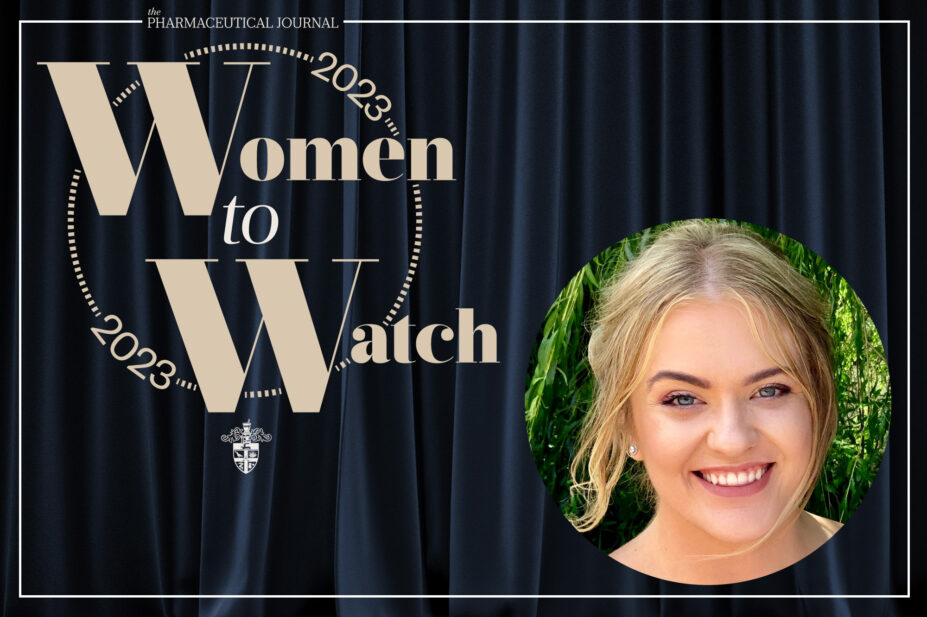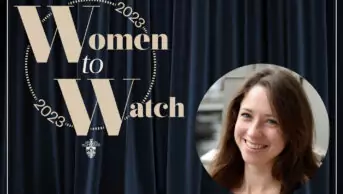
Chloe Barclay/The Pharmaceutical Journal
Chloe Barclay did not set out to work in pharmacy. At college, she was interested in media and publishing, but it was her Saturday job in a community pharmacy that changed her mind. There, she excelled, and they offered to train her as a pharmacy technician.
Within just five years of qualifying, Barclay had moved through various hospital roles to become the national pharmacy technician at Turning Point, a social enterprise supporting people with substance misuse, mental health and learning disability.
Since joining in 2020 as national pharmacy support technician, Barclay has become a vital member of the Turning Point team and, in 2022, she was appointed as its medicines safety officer, a new role at the organisation that involves working across all areas of the organisation to review and share learning from medicines safety incidents.
Her colleagues say she “consistently pushes the boundaries to improve patient care”. This has included making significant savings through the implementation and monitoring of key performance indicators, which has been reinvested into enhanced services such as take-home naloxone provision from community pharmacies.
Barclay has also coordinated the roll out of buprenorphine long-acting injections across Turning Point services as well as liaising with the manufacturer, working hard to ensure the necessary infrastructure and controlled drug cabinets were in place to enable hundreds of clients with opioid dependence to receive this new treatment.
Before moving to Turning Point, Barclay was at a crossroads, not even sure if pharmacy was what she wanted to do, she admits. She had constantly been feeling like she was just side-stepping in her career without progressing. She had even started considering a career in event management and doing some training.
I love the responsibility and the autonomy, and being able to get things done
“I wanted to do something a little bit different that incorporated my skills and this role gave it to me,” she explains. Having that national role and being able to see the impact of the changes she was making on a wider scale, made all the difference, she adds.
Event management training also became incredibly useful when she was tasked with organising Turning Point’s first ‘Safer Lives Conference’ in 2022, looking at how various organisations were working with communities to reduce drug related deaths. It was so successful, with a range of speakers and 100 attendees, that she is currently in the midst of organising another conference for the charity that has attracted three-times the funding. The increased profile of the ‘Safer Lives’ programme has allowed for expansion, giving more individuals access to take-home naloxone and overdose awareness training. “We’re doing it even bigger and better this year. It was unexpected but a really rewarding part of my role,” she says.
As medicines safety officer, Barclay has introduced medicines reconciliation processes and a new system for responding to medicines alerts, which ensures that clients in Turning Point-supported living services do not fall through any gaps between their primary health care provider and mental health teams.
“In the first couple of years at Turning Point, I realised that some of the skillsets that are my strongest attributes and the things I most enjoy are around risk and assurance, seeing how we can really improve practice and understanding what’s gone wrong so that we can improve patient safety, our services and our staff experience, which might not sound appealing to some people but I’m a stickler for detail,” she says.
Not only is it the first time her organisation has had a medicines safety officer, but it is also not common within organisations like Turning Point, she explains. “It’s nice to be the first person within the organisation to do this but also a pharmacy technician so I can show the skills and quality across different roles and titles.”
As medicines safety officer, Barclay has particularly enjoyed the challenge of learning more about the parts of the organisation that provide mental health and learning disability support.
It means Barclay can see the benefit of the projects she is working on. One example was an increase in incidents relating to transdermal patches. She refreshed staff across the charity on the policies and processes that should be in place. “Since then, we haven’t actually seen another incident come through,” she notes.
Barclay recently got married, and spends her free time with her husband travelling to see Formula One races, as well as engaging in competitive Scrabble matches.
In this short space of time, her career has changed “drastically for the better”.
“I love the responsibility and the autonomy of it and being able to get things done. Going from selling over-the-counter medicines to where I am now sitting nationally across an organisation, I really wouldn’t have dreamed it.”
Panel comments
“A female leader who has enabled safe and inclusive care for clients, and organised a conference in 2022 for colleagues — with a 2023 event secured based on the success of this.”
- Meet the rest of The Pharmaceutical Journal’s Women to Watch 2023 here


